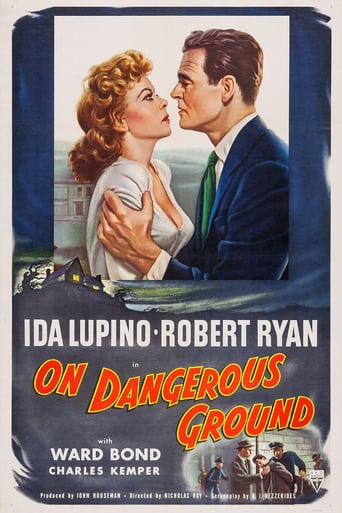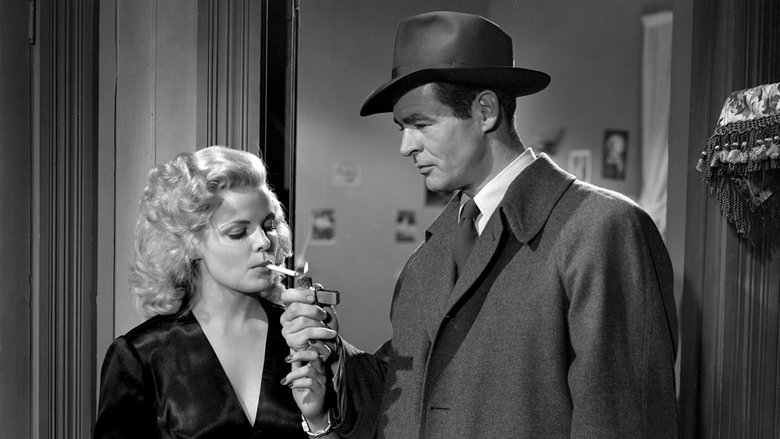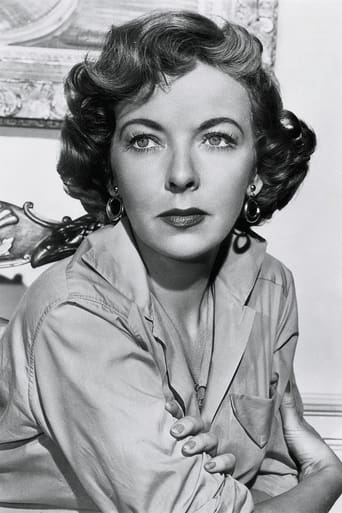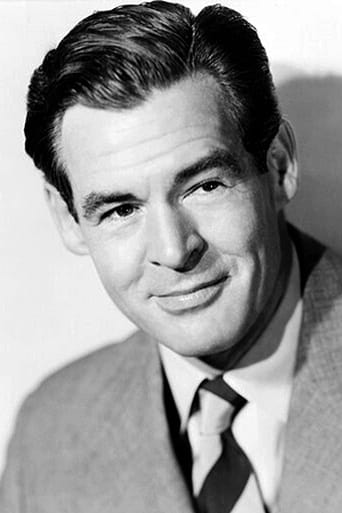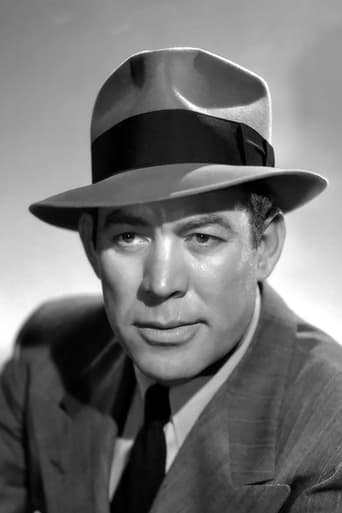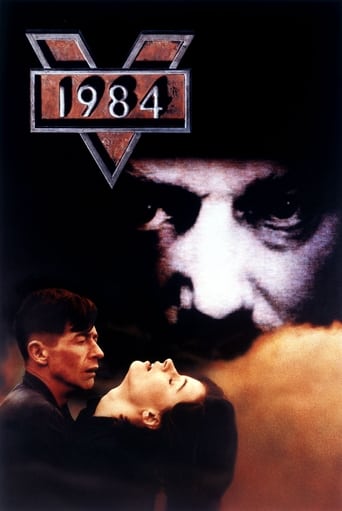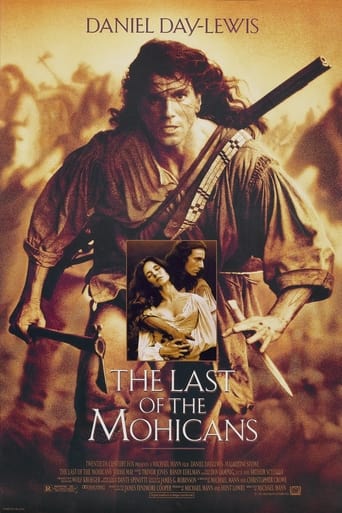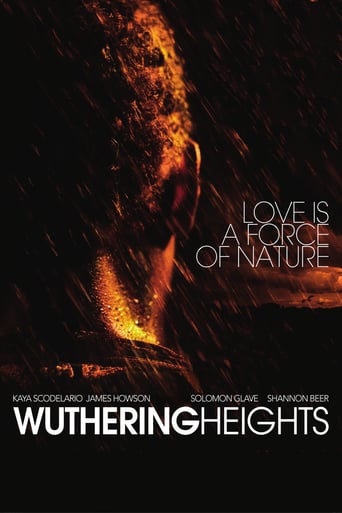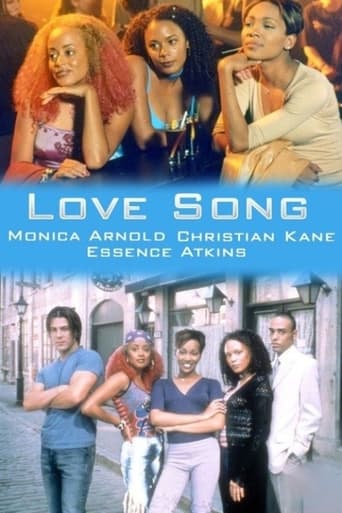On Dangerous Ground (1951)
A big-city cop is reassigned to the country after his superiors find him too angry to be an effective policeman. While on his temporary assignment he assists in a manhunt of a suspected murderer.
Watch Trailer
Cast


Similar titles
Reviews
Touches You
While it doesn't offer any answers, it both thrills and makes you think.
It's funny, it's tense, it features two great performances from two actors and the director expertly creates a web of odd tension where you actually don't know what is happening for the majority of the run time.
The movie turns out to be a little better than the average. Starting from a romantic formula often seen in the cinema, it ends in the most predictable (and somewhat bland) way.
It's tempting to call this forgotten Nicholas Ray film a buried treasure but it's simply not. It's certainly not as well known as the director's landmark films REBEL WITHOUT A CAUSE or JOHNNY GUITAR and that may have to due with the fact that it's not a successful film. Attempting to meld film noir with cinematic pathos is a noble effort that Ray does not pull off. Robert Ryan is a very burnt-out city cop sent to the country to help capture the killer of a small girl. He meets up with Ida Lupino, the sister of the murderer, and learns a lot about himself and patience and understanding. The fact that Lupino is blind is symbolism at its most obvious as she becomes the only person to soften Ryan's hardness. While it's not sentimental, it's also not particularly dramatic. The acting is good with Ray getting the most out of a very reliable cast (Ed Begley and Ward Bond are also in it). The film is nearly stolen by Sumner Williams as Lupino's emotionally troubled brother. He's a mess. The music score by Bernard Herrmann is a stunner.
I find it shocking that this film is not more celebrated. For me, it is the most rewarding of Nick Ray's films that I've seen, apart, perhaps, from In a Lonely Place- a great, but uncharacteristically conventional, drama from the director. As is typical of Ray, the narrative tone veers in unexpected ways between that of noir and '50s Hollywood romantic melodrama. But never has the juxtaposition of the two genres seemed to me so unpredictable and moving. The first half or so is pure urban noir, and a nasty one at that. The sets are very evocative, and Ray deploys great, and for the time innovative, use of hand-held camera. Robert Ryan gives a great and surprisingly contemporary feeling performance. He's terrifying as a misanthropic, sadistic cop. (The thuggish depiction of the police in this film is gutsily honest even by contemporary standards.) Then, as his character ventures into the dangerous geographies of moral complexity, embodied as rural NY state, Ryan becomes shockingly touching. By showing a degree of mercy for someone who arguably deserves none, he achieves not redemption, but complex humanity. If the tone(s) of the film are pure Ray, the philosophical world-view of this movie reminded me most of those of Bresson's most affirmational works.
On Dangerous Ground (1952)Certainly a classic noir but an odd one. It has the personal introspective digging and bits of romance that director Nicholas Ray is so good at. And it has the struggling urban man with a weight that seems unbearable, at odds with even his best friends. It's filmed really well, by a new talent who later moved to television, George Diskant, and it has a score by none other than Bernard Herrmann. Yes, this movie has all the drippings of a classic. It even daringly mixes up heavy urban society and a raw rural mountain existence in basically two halves to the movie, much like the spectacular "Out of the Past."Nothing goes terribly wrong here, but the story just doesn't quite hold water. At first it's okay that we don't know quite what the main point is, and where our sympathies are meant to lie. But eventually there is a diffusion that gets in the way. This seems like a Ray strategy. Most of his films, the famous ones I've seen, tend to do this in a magical way. They start out with one thing and end up doing another. (The two main ones that are in many top ten lists from this era are "They Live by Night" and "In a Lonely Place.") Robert Ryan is certainly the star, even if Ida Lupino gets first billing--she is only in the second half of the film. Ryan's classic brooding evilness never reaches the sympathetic or pathetic levels we might expect of him, but he's supposed to be a tender guy under it all, waiting for someone or something to turn that on. Lupino plays a blind woman (this becomes apparent right away to the viewer but for some reason not to the characters), and of course we sympathize with here. She is strong and kind and wise. And she needs someone. It seems that Ryan is too caught up in his inner turmoil to quiet make it work, however, and he ends up being just a great cop by the end. There is a clash of cultures that is a slightly corny--the city slicker in the country, and so on. And there is the mingling of the two personalities, which lacks some kind of inner magic. (You might say the same in "In a Lonely Place" but it seems more an intentional ploy there.) There is also the problem of the basic crime aspects of the plot. We aren't meant to care too much about that, but it takes up much of the screen time and we need to make it make sense. It's a little compacted and clumsy for all its inner angst. The blind woman's little brother is mentally disturbed--and there's even an implication she skipped out on surgery for her eyes because of needing to care for him. But things have spun out of control, and she can't do much about it any more.See this? Well, absolutely if you like the actors, the director, or noirs in general. It fits into the pack well, and has aspects that are moving and well done. That it doesn't gel into a masterpiece is aggravating because the material is really terrific at its core--a man is fighting for his emotional survival, and seems to stumble on a solution in the least likely way. Beautiful.
"On Dangerous Ground" is a powerful psychological drama about the loneliness and despair experienced by a police detective. The causes of his emotional state, the damaging effect it has on how he does his job and also the means by which his feelings of isolation and anguish are gradually eased, are all depicted with great skill and intensity and produce a very human story which illustrates the immense value of achieving a successful work/life balance.Whilst involved in a hunt for the killers of another police officer, detective Jim Wilson (Robert Ryan) beats up a contact of the suspects and successfully elicits information which leads to the arrests of the culprits. Later, however, he's told by Captain Brawley (Ed Begley) that the lawyer who represents the man who he beat up is considering legal action over the level of brutality which his client suffered. Brawley advises Jim about the need to use a more proportionate amount of force in future but very soon after this warning another incident occurs where Jim again uses excessive violence. He is then told by Brawley that he's becoming a liability to the Department and as a consequence he gets assigned to assist in a murder case being investigated in an upstate rural community.When Jim arrives at his snow covered destination, the local Sheriff briefs him on the details of the case (which involve the murder of a young girl) and very soon they receive information which leads to both of them and the victim's father Walter Brent (Ward Bond) chasing the main suspect on foot. Later, when the fugitive steals a car, Jim and Walter continue their pursuit in another vehicle but their journey ends suddenly when they veer off the road and run into a ditch close to the suspect's car which had just crashed into a tree. They then follow his footprints which lead to a remote cabin where they meet Mary Malden (Ida Lupino). Mary is the blind sister of the mentally retarded murderer. She has a generous and gentle disposition and quickly recognises Jim's loneliness. Her main concern is the care of her brother and she conscripts Jim's assistance in trying to ensure that he's caught unharmed so that he can be given the kind of professional help that he so obviously needs. Meeting Mary eventually leads to the murderer being caught but also, more unexpectedly to Jim's life and temperament being profoundly affected in a way that he could never have imagined was possible.A striking feature of the film is the sharp contrast which is made between the two environments in which the action takes place. The city is presented as dark and threatening whereas the snowy countryside is depicted as more open, calm and almost pristine in appearance. These impressions are consistent with Jim's experiences, as working in the city had brought him into contact with every type of criminal imaginable and brutalised him in the process. The result was that this tough, honest and efficient cop had actually transformed into someone who was sadistic, bitter and on the verge of a breakdown. In the rural environment he became more even tempered so that when the volatile Walter Brent expressed his determination to personally kill the murderer, Jim found himself acting as a restraining force and an advocate of balance and reason.Jim's loneliness and the negative effects that his work had on him were exacerbated by his lack of personal relationships, an inability to socialise successfully and a failure to separate work from his personal life. His colleagues were family men with hobbies who could leave the strains of the job behind them whilst Jim, by contrast, found that the anguish of dealing with human garbage was something which he carried around with him all the time. When he met Mary, he responded to her warmth and kindness and achieved a level of contentment which he previously would've considered to be impossible.The work of Nicholas Ray (a director known for his sensitivity and compassion for his characters) and strong performances from Robert Ryan and Ida Lupino ultimately produced a movie which was unpretentious, memorable and sometimes also rather disturbing.

